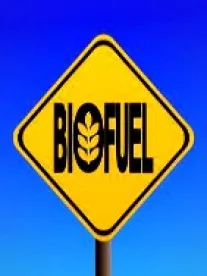The EPA released its Renewable Fuel Standard (RFS) volumes at the end of November. The RFS program was established by Congress to spur the development of biofuels in the U.S. transportation sector in order to reduce greenhouse gas emissions and increase energy security. The standards raised the 2017 conventional ethanol mandate to the statutory maximum and increased the mandate for total advanced biofuels more than expected. “Renewable fuel volumes continue to increase across the board compared to 2016 levels,” said Janet McCabe, the agency’s acting assistant administrator for the Office of Air and Radiation. “These final standards will boost production, providing for ambitious yet achievable growth of biofuels in the transportation sector.”
According to Farm and Dairy, farm groups are encouraged by the increases. Wesley Spurlock, Texas farmer and National Corn Growers Association president, said the decision was a step in the right direction. “This is critical for farmers facing difficult economic times, as well as for consumers who care about clean air, affordable fuel choices, and lowering our dependence on foreign oil,” he said. “The Renewable Fuel Standard has been one of America’s great policy success stories.”
The American Soybean Association, likewise, said the increases are encouraging, but said there is more opportunity. “There are positive aspects to the volumes announced, with the overall RFS increasing and the total Advanced Biofuels portion being increased above the levels in the proposed rule.” However, the ASA said it would still like to see additional support and promotion of domestically produced biodiesel, through higher volumes for the biomass-based diesel category. “The levels announced today provide opportunities but also do not take full advantage of an opportunity to further promote a viable, domestically produced renewable fuel industry that is U.S. biodiesel,” said ASA President Richard Wilkins.




 />i
/>i

